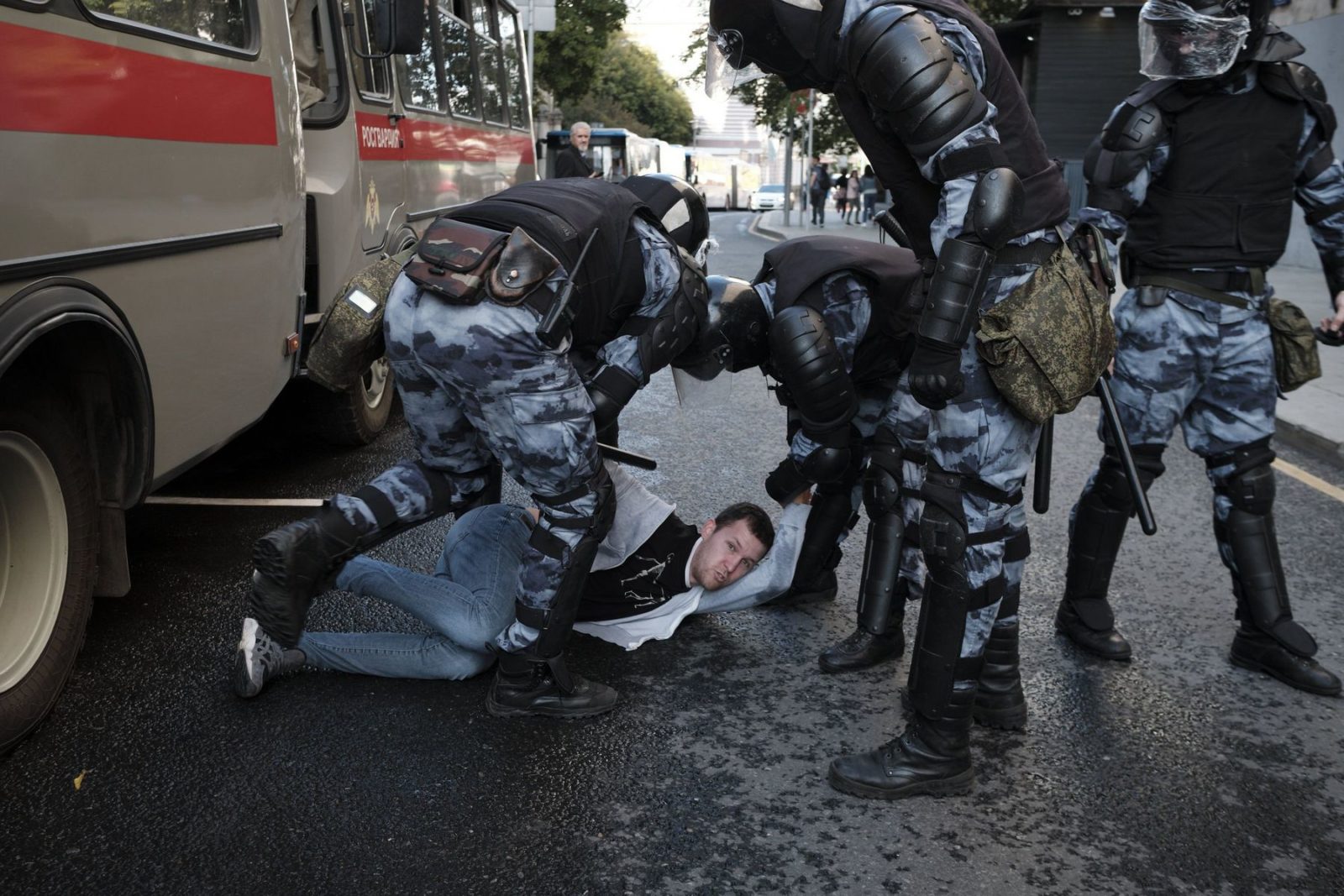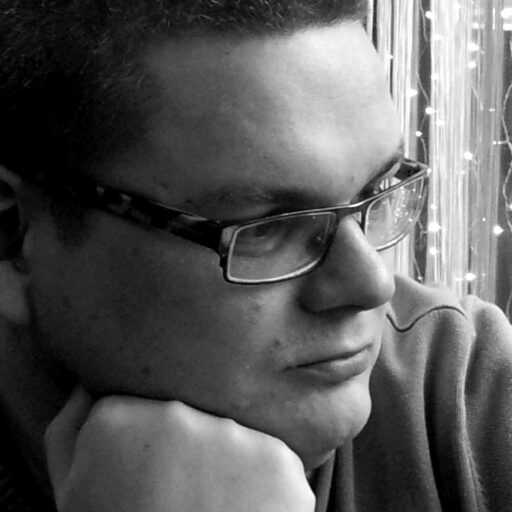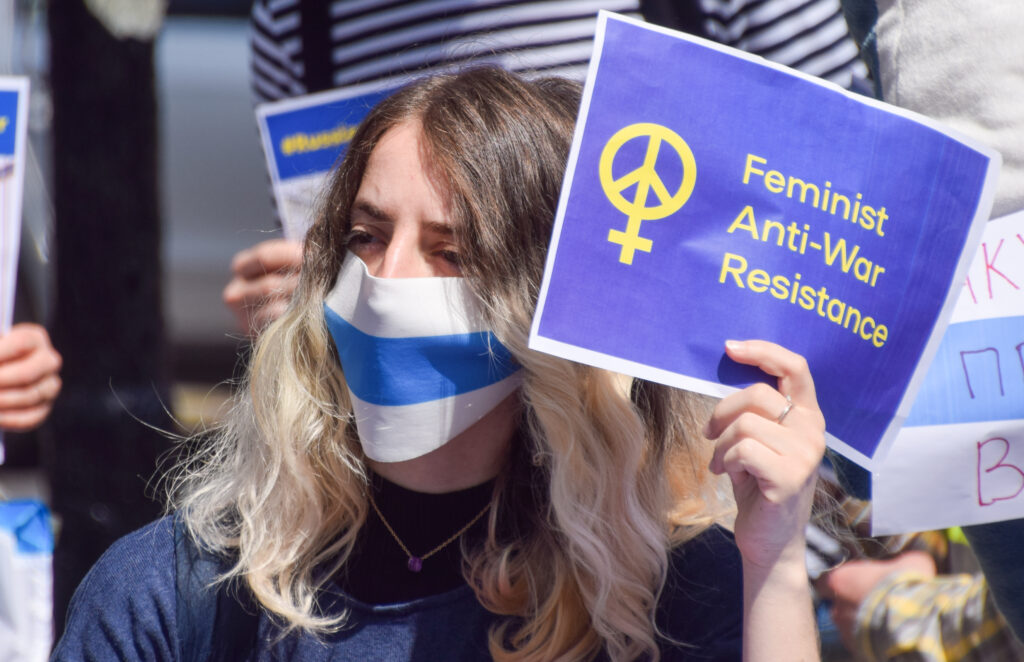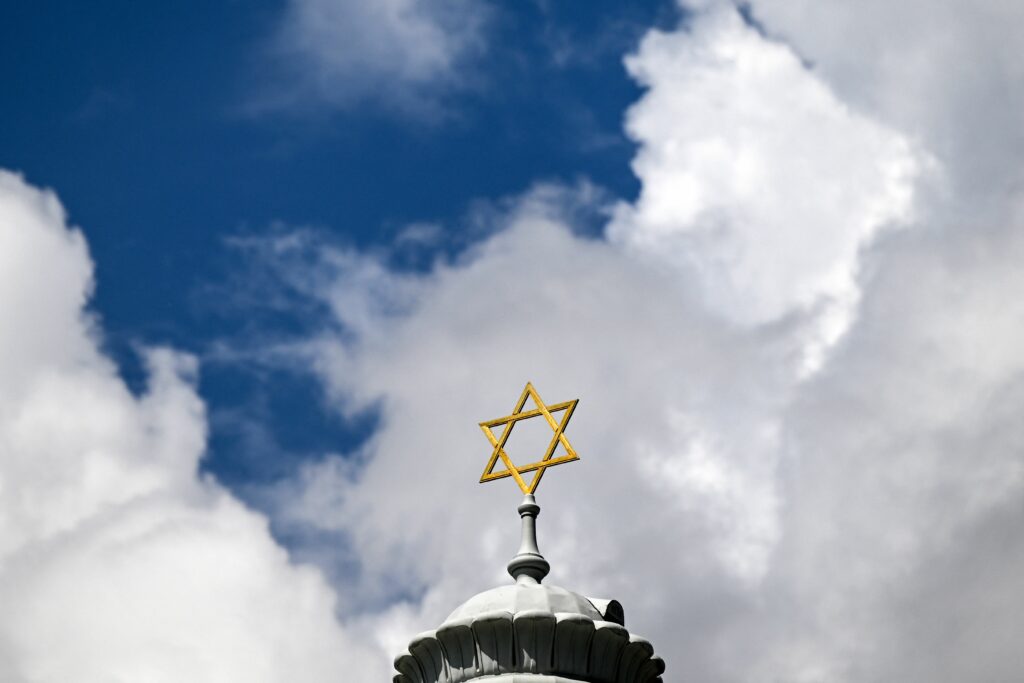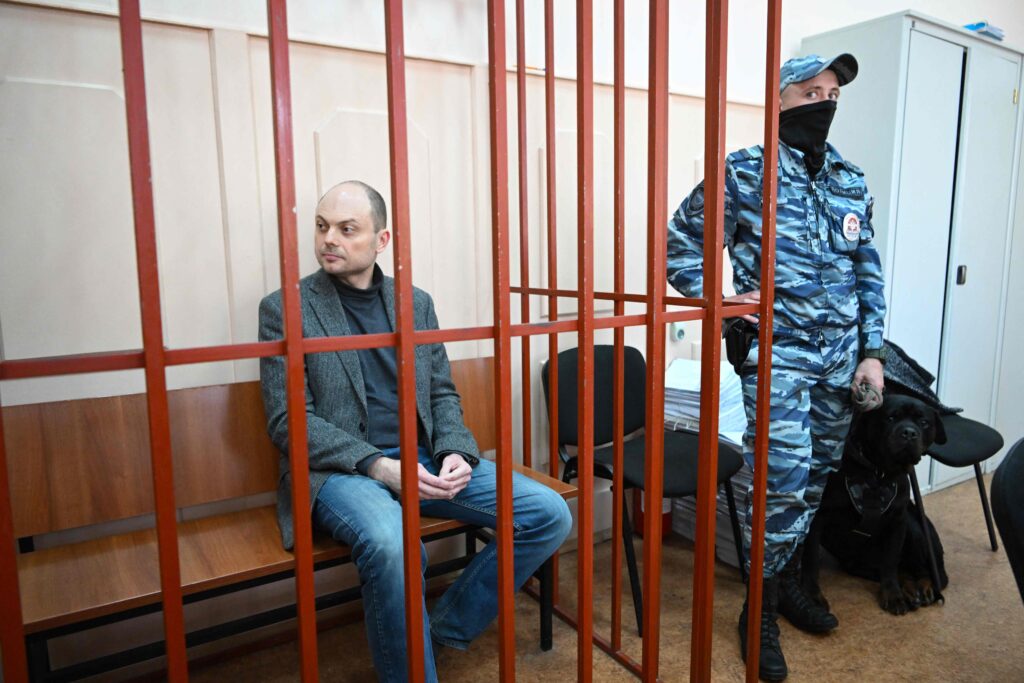The main extremists in Russia are the authorities. It seems that the first to express this thought was the political scientist Gleb Pavlovsky in his book on the “System of the Russian Federation.” That system only feels comfortable in extreme situations. And if, for some reason, these situations are lacking, it conjures them out of thin air. The state guards its monopoly on extremism, so to speak, even more jealously than its monopoly on violence (sometimes, that monopoly on violence is nonetheless outsourced to “patrotic” paramilitary groups, such as the “orthodox athletes” who attacked those protesting against the construction of a church in a public square in Yekaterinburg.) Nevertheless, when it comes to “public calls to commit extremist acts,” i.e. for thought crime, the state represses regularly, and it represses harshly.
This insight is key to understanding the protests which have erupted in Moscow these summer months. When the city’s electoral commission invalidated hundreds of signatures in support of independent opposition candidates, that was an extreme act, perhaps an extremist one (according to Russian law, self-nominated candidates must collect a certain number of signatures in order to register with the electoral commission and run in the elections.) When the move predictably provoked public outrage, the electoral commission responded by upping the ante and overhyping the conflict before attempting to deflect the blame.
With thousands of protesters on the capital’s streets, Russia’s law enforcement agencies are now tasked with “correcting” (or “cleaning up,” to use a euphemism from the time of the war in Chechnya) the errors of Moscow’s mayoralty and electoral commission. What started as a simmering dispute about the upcoming local elections in September has grown into a far more consequential confrontation: a demand for basic human rights.
Police operations now paralyse the centre of one of Europe’s largest cities. Riot police beat unarmed protesters on Moscow’s streets and detain them at will. This is what public discussion with the Russian authorities now looks like. Perhaps it’s the only kind of discussion left to those who are trying to realise themselves as political subjects, without being integrated into the system of power as its obedient functionaries.
The periodic “hunting seasons” unleashed by the police and National Guard (a special service created by Vladimir Putin in 2016 from units previously controlled by the Ministry of Internal Affairs) have become routine events for residents of the capital. Its residents don’t forget the antics of these thugs with batons in a hurry. Consequently, it can be hard to remember exactly how this state of affairs came to be.
As mentioned earlier, the catalyst was the city electoral commission’s invalidation of voters’ signatures collected by independent opposition candidates (which was, without doubt, a command from the mayor’s office.) The numbers of “invalid” signatures discovered were surprisingly and suspiciously accurate; the commission found exactly the right amounts needed to prevent candidates from being allowed to run.
Specially appointed handwriting experts hired by the Ministry of Internal Affairs to analyse the signatures declared several hundred thousand people non-existent. These were living people, real people, who quite consciously expressed support for opposition candidates. But these signatories, who disappeared by the decree of experts, were not nobodies. Among them were several prominent people who were quite capable of making noise. For example, the signature given by independent candidate and journalist Ilya Yashin in support of independent candidate Gennady Gudkov’s candidacy was also invalidated.
Candidates tried to resist this onslaught of arbitrary bureaucratic hurdles, but in vain. Yashin collected statements by those who gave their signatures in his support, along with copies of their passports. The authorities refused to even consider these statements. Independent candidate Ivan Zhdanov brought similar materials to court, but was given the same answer by the judge: “there is no reason not to trust the handwriting experts’ conclusions.”
So it’s no surprise that many Muscovites are angry and have taken to the streets. The authorities, starting with local authorities, have openly questioned their very existence, at least as political subjects able to articulate their own political preferences. That right to exist has been usurped by “handwriting experts” serving at the behest of the state.
The stakes of this battle were overstated. It is still not entirely clear why the mayor’s office was so stalwart in refusing to allow independent candidates to run in the election, and rushed headfirst into a destructive conflict for that cause. After all, the elections still need to be won. That is not an easy feat in Russia, where the outcome of votes do not reflect candidates’ popularity, given the administrative resources at the disposal of the authorities. A handful of oppositionists in the Moscow City Duma may admittedly have made life difficult for the city’s authorities, but these new faces would not have posed a grave threat to their power. Even if elected, these deputies would not have formed a majority (they would have first had to come to an agreement with one another, which does not come easily to the Russian opposition.)
But the city hall made its choice. Its unwillingness to reconsider, combined with staggering political incompetence, came to exacerbate the dispute. Although protesters chiefly demanded the admission of independent candidates to the Moscow election, their cause was now about something greater — it was about whether Russia’s political institutions, whose function the executive branch perceives as purely decorative, can ever correspond to their declared functions.
From henceforth, any step the authorities took would only exacerbate the situation. There was nowhere to retreat; if retreat was ever considered. By the political logic of Russia’s rulers, to retreat, to succumb arbitrarily to citizens’ legitimate demands, means only one thing: to lose. Recognising citizens as citizens is the worst possible defeat for such a system. As an experienced politician, Moscow’s mayor Sergei Sobyanin understands such things all too well.
However, the mayor and his team only play a walk-on role in this drama. Events are developing quickly and unpredictably. When Moscow municipal deputies organised a meeting with voters on July 14 in Novopushkinsky Square, in the centre of the city, the event turned into a march to the Moscow City Council building and ended with arrests of its participants. The next rally, held a week later, was agreed upon and became the largest single opposition event in recent years. After that, the protesters’ demands received a harsh response clearly directed by powers higher than the Moscow city hall. Federal security services stepped in to solve this Muscovite problem.
Russia’s investigative committee has already opened a case on “obstructing the legitimate work of the electoral commission,” in reference to the events of July 14. It is a peculiar phrase to apply to those events, given that the protests were held on a Sunday; so a difficult time to prevent the work of those who are not at work. In any case, the Russian authorities usually regard common sense as an enemy. Independent candidates were subjected to night-time searches of their homes (which is illegal), as a result of which all of them apart from Lyubov Sobol ended up in temporary detention centres, under administrative arrest for “violating the rules on holding mass events.”
Thus the unsanctioned rally held on July 25 has become the central political event of Russia’s summer. For now. In order to prevent protesters from reaching the city hall, police forces were redeployed to the capital from across almost the entirety of European Russia. The centre of the capital was paralysed; it seemed as though the city was under enemy occupation. A peaceful rally was declared a “riot,” and a corresponding criminal case was opened alongside cases concerning attacks on police officers. All the mayor could do was mumble a speech from the teleprompter about the “justified actions of the police” live on the TVC channel (which he also controls.)
The actions of the police, or rather those who gave them their orders, have proved counterproductive; they have pushed the issue of elections to one side. In a sense, the debate is not even about electoral politics, but about human rights and human existence. Can somebody walk down the city’s streets on a weekend without fear of being arrested, beaten, fined, and prosecuted?
The answer to that question, positive for the authorities and negative for ordinary citizens, was given during the next rally, on August 3. Protesters walking down the city’s avenues were caught, beaten, and detained. Political activists and even casual passersby got caught up and suffered. There is no longer a place for a normal life in Moscow’s city centre.
Pro-government propaganda also played an important role, and dealt an additional blow to the protesters. At first, the protests simply went unnoticed. But it soon became apparent to the authorities that ignoring the events was a little stupid. Those experts who had worked so hard to expose the “junta in Kyiv” after the Ukrainian revolution with such glee now had a new task, and they mobilised all the lies and manipulations which are now a regular feature of media coverage about Russia’s western neighbour. “They turned up with clubs!” spluttered one enraged front-line propagandist on his own show, a man who is also a millionaire and owner of luxury villas in Italy. The protesters came “with knives and knuckledusters,” added another.
Stories alleging atrocities against policemen and their suffering at the hands of protesters also appeared. These have also failed to become the defining moments of our political moment, but not for want of trying by the pro-government media and their sympathisers. In a broad sense, one of these stories turned out to be true; a member of the national guard dislocated his arm when miscalculating the strength of his swing as he beat unarmed protesters on the streets. Another memorable moment, which has become something of a tradition, came when head of RT Margarita Simonyan tweeted about another event which overshadowed the protests. Simonyan was referring to a barbecue festival hastily organised by the mayor’s office in Moscow’s Gorky Park on the day of the protests. Despite advertising that several prominent musicians would perform at the event, the mayor’s office even neglected to let the artists know in advance about their own participation. Nevertheless, many popular musicians refused to participate in the event, likened to crossing the picket line in a strike. One even went for a walk through the streets of central Moscow and luckily avoided getting a beating. “All the politically engaged are making noise about these Moscow protests online, and I’ve never heard of them. On the same day, a barbecue festival which nobody made any noise about was attended by 305,000 people,” wrote Simonyan, turning an event hastily concocted by the mayor’s office into one of the world’s most visited festivals in a couple of sentences.
Meanwhile, the strategists who determine Russia’s political course are now thinking about upcoming elections to the State Duma in 2021. But 2024 is also on their minds; the “problem year” when Putin loses his formal right to be elected for yet another presidential term. The problem of how to preserve his hold on power is starting to loom large. Accordingly, it would be more accurate to say that the State Duma elections are also part of this “2024 problem.”
Against the backdrop of the regime’s repeated failures, Russian society is becoming politicised. The country’s residents are recalling the fact that they are citizens with formal rights, and they are now trying to assert those rights. Those demands may complicate the Kremlin’s long-term strategic task in the run-up to 2024. Yet the protests in Moscow show what methods the authorities are prepared to use against their fellow citizens. Namely, the response to spontaneous politicisation is organised, punitive depoliticisation. A person who claims the right to exist in the sphere of politics is declared non-existent. The dissatisfied are simply beaten. And beyond that, there are no answers to their questions.
In sum, the Russian authorities are quite ready to resort to extremist methods, becoming the country’s main extremists in order to deny any possibility of changes to the political structure over which they preside.
And all the while, the line between political non-existence and a broader sense of non-existence as such has become so thin as to be almost imperceptible. As Russia’s historical experience demonstrates, it is a line which can be easily crossed.
